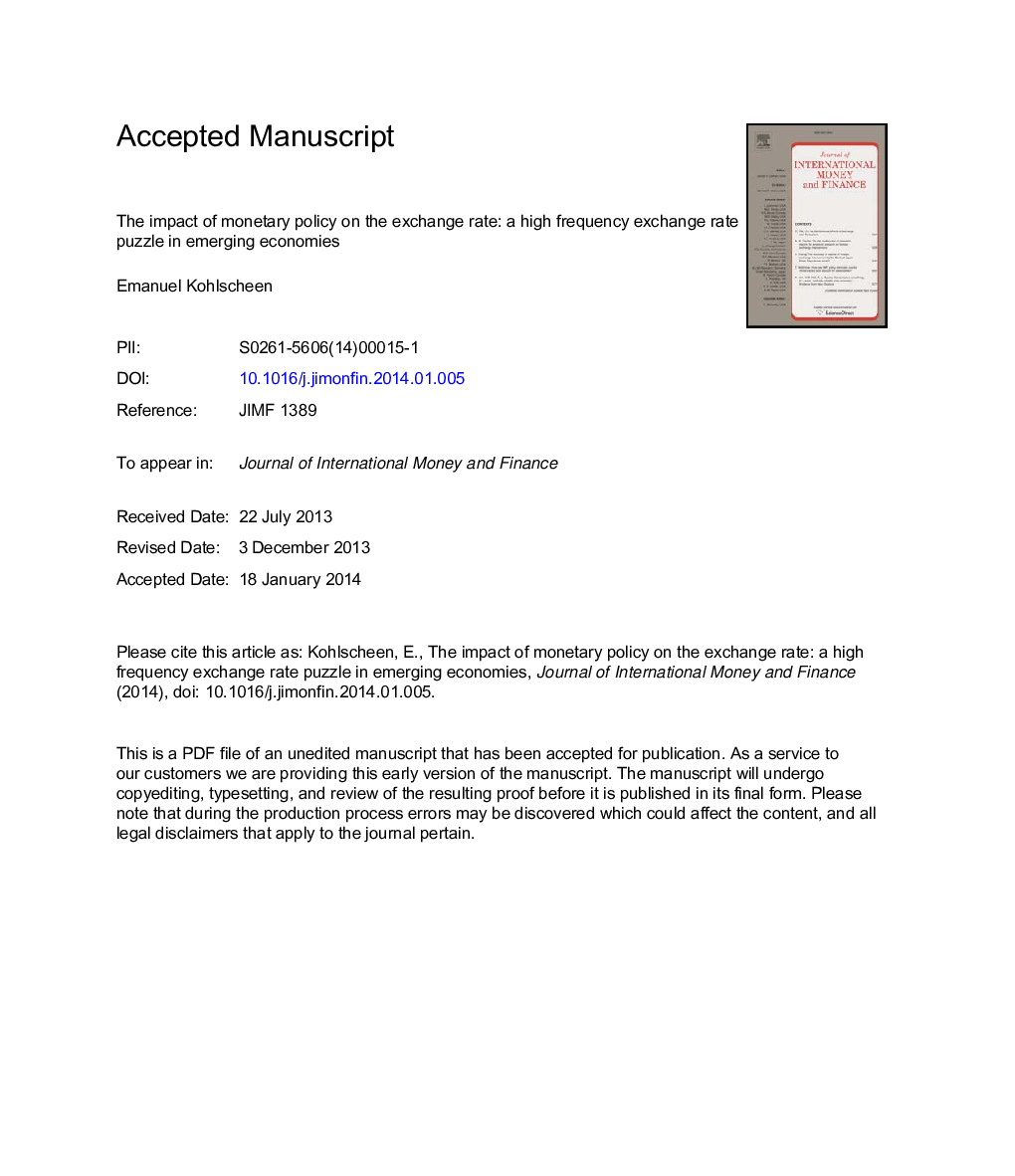| Article ID | Journal | Published Year | Pages | File Type |
|---|---|---|---|---|
| 7365756 | Journal of International Money and Finance | 2014 | 61 Pages |
Abstract
This study investigates the impact of monetary policy shocks on the exchange rates of Brazil, Mexico and Chile. We find that even a focus on 1 day exchange rate changes following policy events - which reduces the potential for reverse causality considerably - fails to lend support for the view that associates unexpected interest rate hikes with immediate appreciations. This lack of empirical backing for the predictions of standard open economy models persists irrespective of whether we use the US Dollar or effective exchange rates, whether changes in the policy rate that were followed by exchange rate interventions are excluded, whether “contaminated” events are dropped from the analysis or whether we allow for non-linearities. We argue that it is difficult to attribute this stronger version of the exchange rate puzzle to fiscal dominance, as unexpected rate increases are not associated with increases in risk premia, and similar results are obtained in the case of Chile - a country that has had the highest possible short-term credit rating since 1995 and a debt/GDP ratio below 10%.
Related Topics
Social Sciences and Humanities
Economics, Econometrics and Finance
Economics and Econometrics
Authors
Emanuel Kohlscheen,
